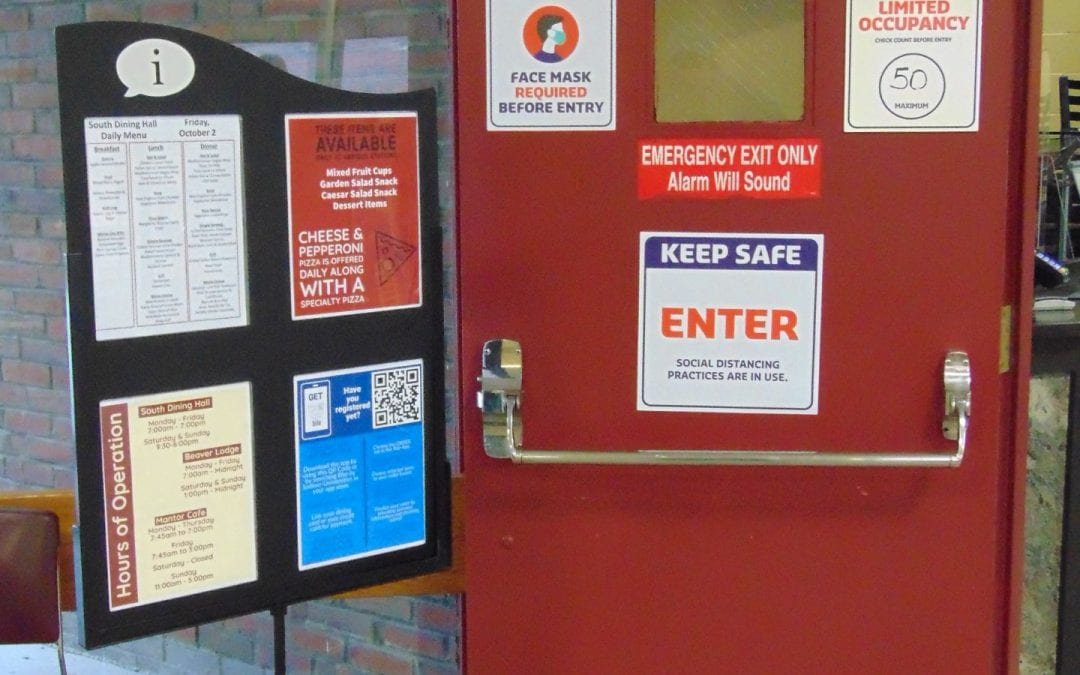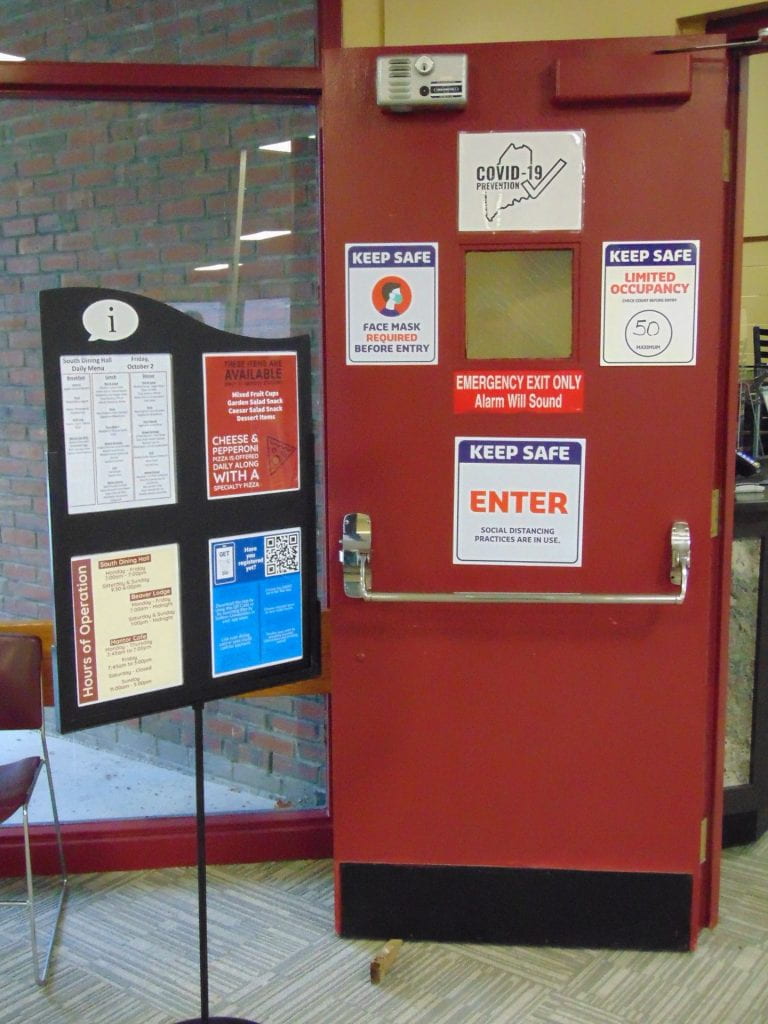
Dining Changes Leave Students Unsatisfied
by Nevaeh Rush, Vice President
The changes in the dining hall on campus due to COVID-19 have left the majority of students unsatisfied with their meals and wanting more for the price of their meal plans.
With new regulations on campus, the cuisine at UMF has vastly changed. South Dining Hall has been changed to a buffet style where students take their food and leave. “You walk in and tap your dining card,” said Sophomore Julia Partridge, “It only goes one way, and you have to grab food items through the line.”
There are 50 people allowed to be in the South Dining Hall at one time, leaving students feeling rushed as they go through the line. Sophomore, Emily Thompson said, “If you forgot to grab something and you passed it, forget about it.”

New signage posted outside the new entrance of the dining hall, changed due to COVID-19.
Photo courtesy of Sam Shirley.
Having unlimited swipes comes in handy for those students who feel that the lack of options is a greater problem this semester than it has been previously. “I find it harder to eat healthy,” said Partridge. “There are less healthy options and the ones they do have often do not taste good,”.
Senior, Thomas Watson struggles in particular with the options in the dining hall this semester. Watson struggles with Celiac disease, a hypersensitivity to gluten. This limits many of the options for him to eat in the dining hall. “I am basically limited to the gluten free sandwiches or the simple servings,” Watson said. “And the simple servings happen to be closed on the weekends.” All of the prepackaged food is already out for the day, therefore often the gluten free sandwich options he is limited to are gone by the end of the day.
“I do believe that I have the option to call ahead an hour or more and ask them to prepare me something gluten free.” He said. Although that is a better alternative some days, it is not always convenient in the uncertainty of a college student’s busy schedule.
Watson as well as Thompson, both having the highest meal plan (meal plan A), voiced their concerns about spending their own money on top of the meal plan cost due to being simply unsatisfied with the food. “I am a picky eater,” Thompson said. “There often are not many options I will eat.”
“I wouldn’t call it a need to technically, there are the things in the dining hall that are needed for survival,” Watson said. “But I am finding myself spending more on outside food than I normally had.”
Yet there are some benefits with the new system, “I have been sick less from cross contamination of gluten products,” Watson said, “because everything is now packaged separately.” Many students are also enjoying the new eating areas on campus, such as the Mantor Green. “It is nice to sit outside and eat when it is nice out,” Watson said.
“It is a necessary evil,” he said. “The dining hall is doing what they have to to be open.”